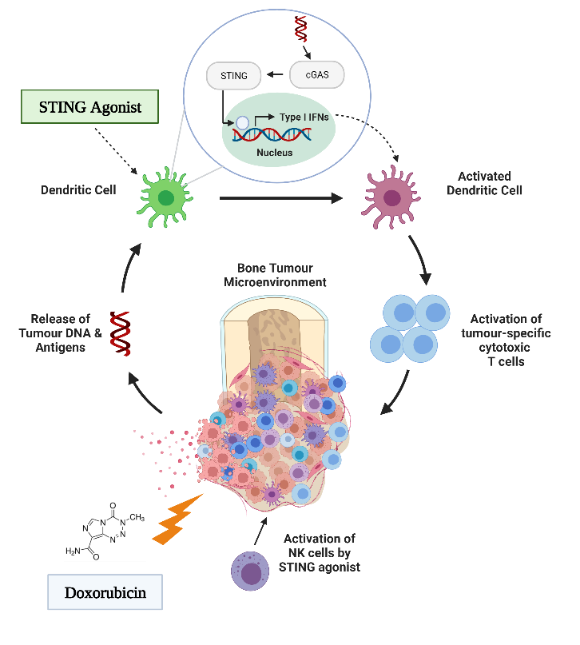Immunoengineering
The development of chemoresistance presents a major challenge in effectively treating osteosarcoma, and overcoming this challenge is crucial for better patient outcomes. The interaction between cancer and the immune system has long been recognized as a critical aspect of chemoresistance. Tumour cells within the tumour microenvironment suppress antitumor immunity, and immunosuppressive cells and cytokines provide the extrinsic factors for tumour drug resistance. A Stimulator of Interferon Genes (STING) agonist is a promising activator of antitumor immunity.

However, while STING agonists are being advanced to pre-clinical trials for several solid tumours, the immunologic and therapeutic impact of STING activation has not yet been explored in the context of osteosarcoma. Our lab is interested in understanding the role of the STING pathway in how the innate immune system recognizes osteosarcoma. This understanding would enable us to develop a therapeutic that targets this pathway, enhancing the therapeutic potential of chemotherapy and preventing chemoresistance.